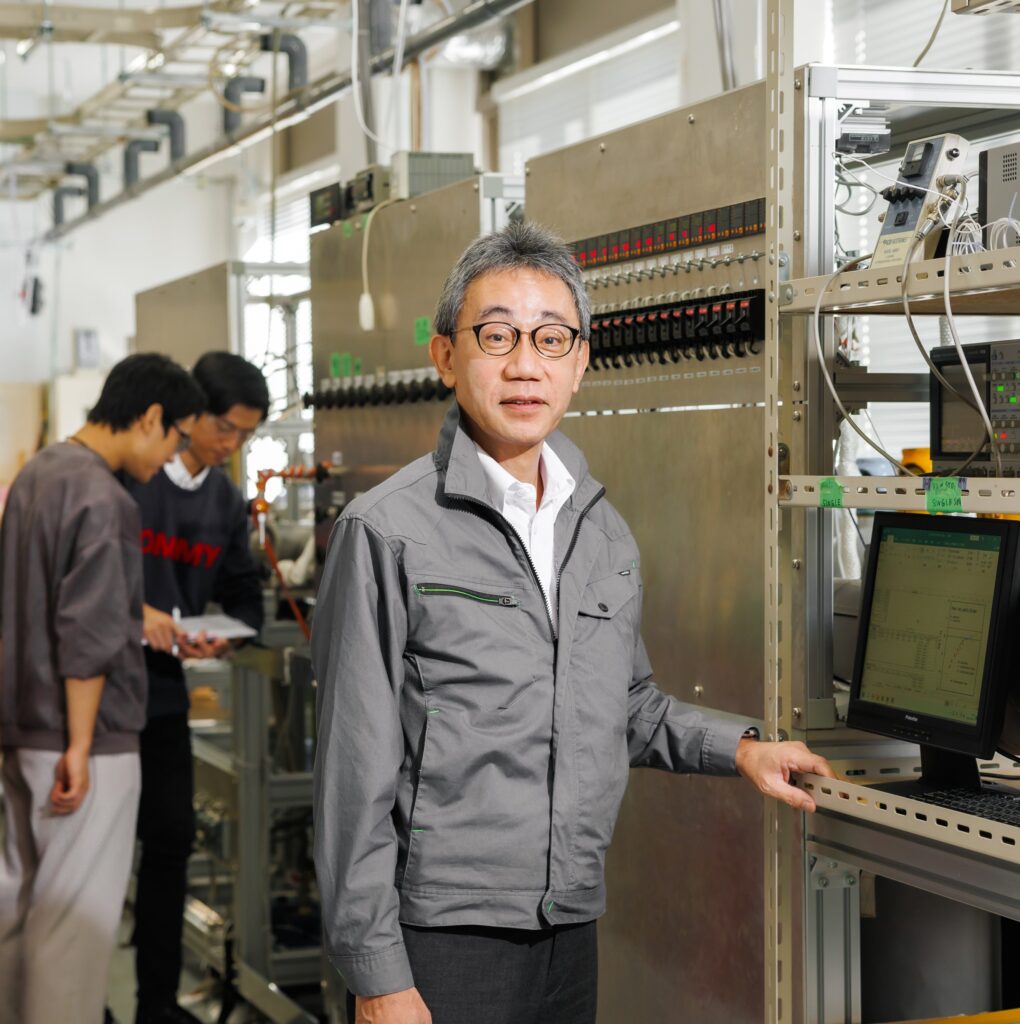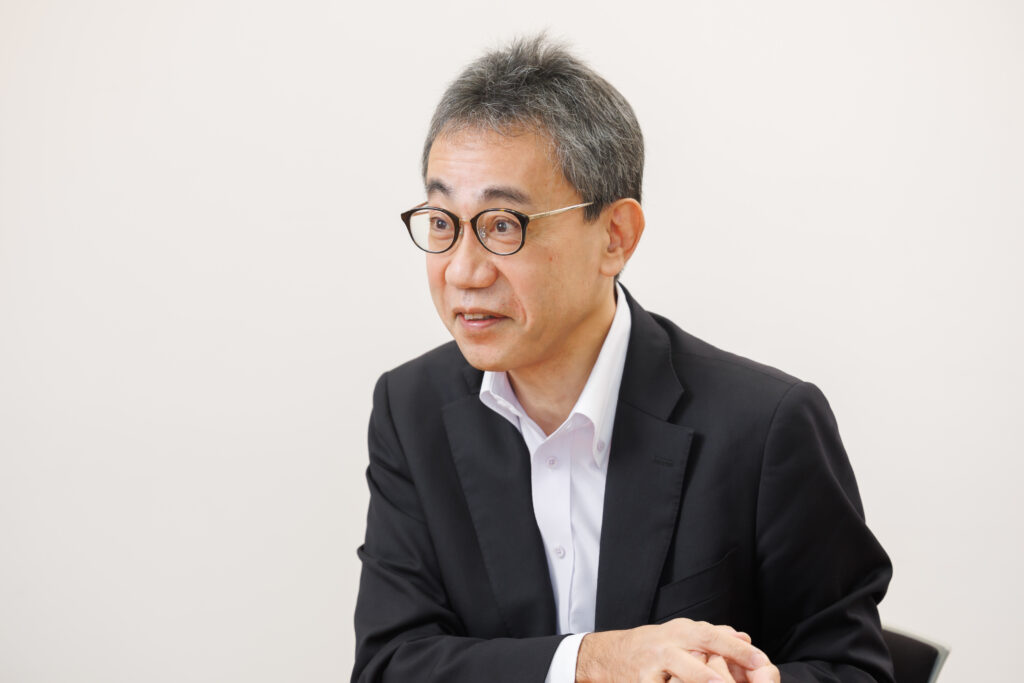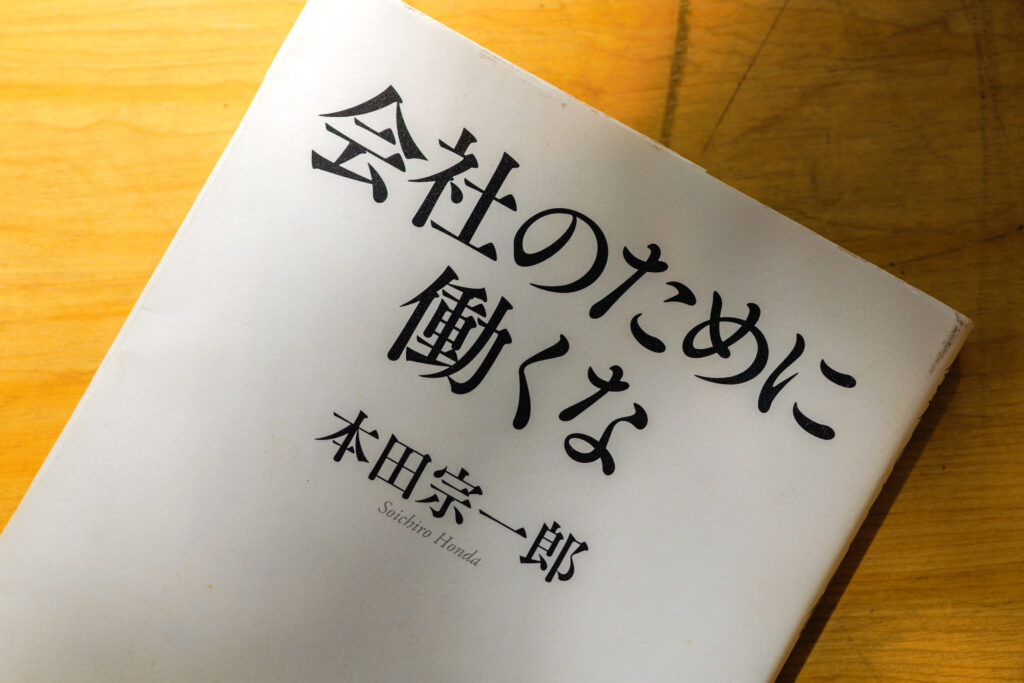
Professor Kazuo Takahashi of the Faculty of Science and Technology is engaged in the development of next-generation fuels. Here, he discusses his research into fuels that use ammonia, which emit zero greenhouse gases, and into next-generation gasoline, which have the potential to significantly reduce CO2 emissions.
Adopted in 2015, the Paris Agreement requires countries around the world to reduce their greenhouse gas emissions. Japan has declared goals of reducing its greenhouse gases by 46% compared to fiscal 2013 levels by 2030, and to achieve net zero by 2050. As a consequence, development of carbon-free energies that generate zero CO2 is now proceeding at a furious pace, with a focus on their application for automobiles in particular. Although electric vehicles that run on electricity do not generate CO2 when they are driven, electricity production continues to rely on thermal power generation; as a result, vast volumes of CO2 are generated at the power generation stage. At Sophia University, our research aims at the practical implementation of fuels that use ammonia, which do not emit CO2 even when they are burned.
Ammonia is widely used as a chemical raw material in fertilizers, food, and pharmaceuticals; it can also be burned in air to generate heat energy, in the same way as gasoline. Yet because ammonia contains no carbon, in contrast to gasoline, it generates zero CO2 when burned. Ammonia is made from hydrogen and, in recent years, advances have been made in technologies to produce hydrogen from water using renewable energies. If the hydrogen production process can be successfully implemented, then we can eliminate CO2 emissions entirely. Sophia University has designated this as one of its priority research fields, and we hope that in the near future our university will become a key ammonia research base for Japan.
Participating in large-scale joint research with automakers, the oil industry, and multiple universities

It will require a little more time for carbon-free fuels like those I outlined above to come into widespread use. Accordingly, I am also engaged in developing next-generation gasoline, which can help significantly reduce CO2 emissions. Gasoline generates thermal energy when it is combusted, and the proportion of this thermal energy that is used to drive a car—its original purpose—is called “thermal efficiency.” At present, cars have a thermal efficiency of roughly 40% when driven in urban areas. If we can make major improvements to this efficiency, then we can reduce the amount of gasoline that has to be used—and this, in turn, will result in significantly reduced CO2 emissions. For this reason, automakers, the oil industry, and multiple universities have come together to create a large-scale joint industry-academia research system, and we are working to increase thermal efficiency to 60%. Members of Sophia University are participating in this research project as a fuel development team.
Contributing to society via a field of study I enjoy makes for great job satisfaction
It is difficult to evaluate the performance of new fuels in actual automobile engines. So, we carry out our research using a special device called a high-pressure shock tube, which allows us to simulate the conditions inside an engine. The high-pressure shock tube in our research lab is the most advanced in Japan, and we have received joint-research requests from the government and from numerous companies. In addition to ammonia fuels and next-generation gasoline, we also conduct research into various other carbon-recycling fuels—such as plant-derived biofuels, and e-fuels that are produced from CO2 and renewable energies—with the aim of realizing a carbon-neutral society.
I have continued along the path of physical chemistry simply because I like chemistry and physics. When I was a student, I had no idea that environmental problems would become so serious, nor did I envisage becoming a researcher that specializes in the environment. But I like my job—it allows me to contribute to society via a field of study I enjoy. The state of society is fluid, and the research it requires is subject to change—and this is something I would like my students to keep in mind. Therefore, I advise them to study subjects they enjoy at university and to hone their expertise; I also encourage them to keep sight of the broader picture and to become adults who can cater flexibly to society’s needs.
The book I recommend
“Kaisha no tame ni hatarakuna“(Don’t work for your company’s sake)
by Soichiro Honda, PHP Institute

This book is a collection of proverbs by Soichiro Honda, the founder of Honda Motor Company. It is full of wise sayings, such as “do not work for your company’s sake,” and “do what you want to do.” The author devoted himself to creating products that benefit society, and the way he lived his life will doubtless serve as a guide to high school and university students about to enter society.
-
Kazuo Takahashi
- Professor
Department of Materials and Life Sciences
Faculty of Science and Technology
- Professor
-
Graduated from the Department of Chemistry, Faculty of Science and Technology, Sophia University; and received his Ph.D. in Engineering at the university’s Graduate School of Science and Technology, Applied Chemistry Division. Worked as a researcher at the Japan Atomic Energy Research Institute (a precursor to the Japan Atomic Energy Agency), as a postdoctoral researcher at the University of Duisburg-Essen, and as an associate professor at Sophia University’s Faculty of Science and Technology, before taking up his current post in 2018.
- Department of Materials and Life Science
Interviewed: October 2022